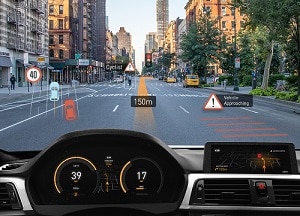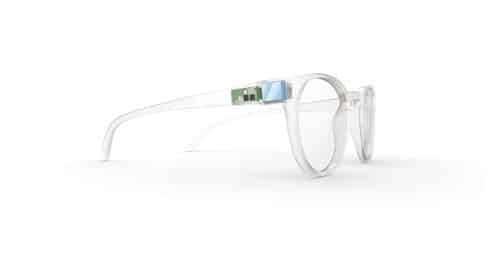Based on a MEMS scanner technology, the solution lays the foundation for a new generation of laser beam scanner (LBS) projectors

Wouldn’t it be amazing if your ordinary eyeglasses transform as a medium for augmented reality applications? Or your car could display navigation data on the entire windshield to securely guide you through the traffic?
What seems like science-fiction is now a reality, thanks to the new MEMS scanner technology from Infineon Technologies AG. The miniature, low-power consumption solution comprises a MEMS mirror and MEMS driver, acting as the basis for making augmented reality (AR) solutions more widely available for consumer applications such as wearables and automotive head-up displays (HUDs). The company’s MEMS scanner chipset features an innovative tilting mirror that lays the foundation for a new generation of laser beam scanner (LBS) projectors.
The biggest challenge encountered during the development of AR-HUDs is system integration into the dashboard due to space constraints. Conventional HUD systems can be more than 30 litres in optical volume, yet still offer only a very modest field of view. Comparatively, Infineon’s MEMS laser beam scanners enable HUD systems with minimum optical volume for easy integration even into the smallest dashboard, enabling a large field of view in small cars and compact classes.
Another application is eyeglasses and sports glasses. Due to the low power consumption of Infineon’s MEMS scanner chipset and its lightweight AR micro-projector, these glasses can be conveniently worn throughout the day without the need to frequently recharge the batteries.

To advance the development of AR smart glasses’ systems for the consumer market, Infineon is collaborating with TriLite Technologies GmbH, a Vienna-based start-up. While Infineon will look after the MEMS scanner chipset, TriLite will be responsible for system integration and control algorithms that enhance the system’s optical performance.
“Augmented reality solutions enrich real environments with valuable digital data and help people to move around more conveniently and safely in daily life, for business and leisure activities, but especially on the street,” said Charles Chan, head of Infineon’s automotive MEMS product line. “Maps, infotainment or messages projected on everyday glasses guide people to the nearest supermarket or shared car park around the corner. Overlaying valuable information, from route navigation to driver assistance systems, over the car’s complete windshield, instead of just over a small area in front of the driver, is a major step ahead for improving driving safety and convenience.”






